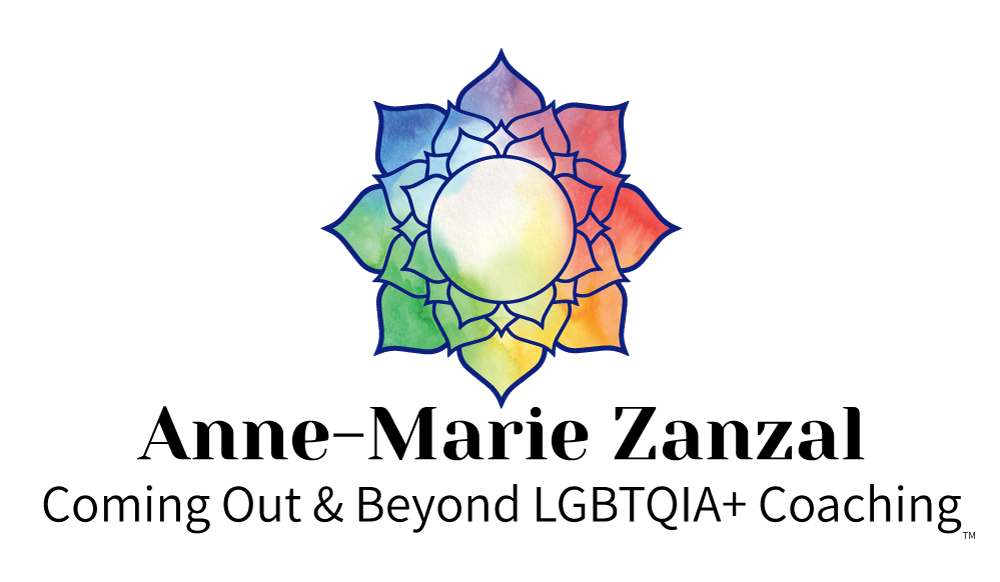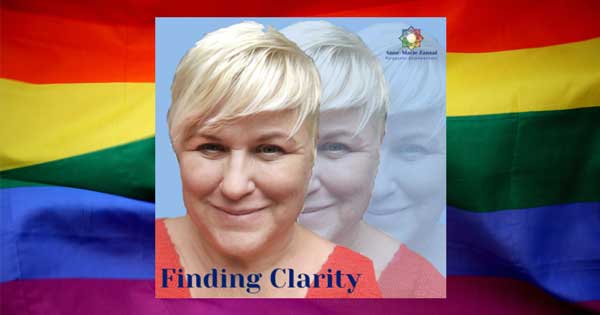I came to the coaching world with a background in adult development, ministry, chaplaincy, and bereavement counseling. I brought to this work and educational background the adult life experiences of having a long-time heteronormative marriage; being the mother of four children; returning to school for a master’s degree at forty-two; an internship and residency in chaplaincy; years of working in hospice; and coming out later in life to the LGBTQIA+ community.
Although the list is long, the hardest thing I have done to date is come out later in life and I wanted to use both my background and personal experience to help others. With good intentions, I set out on my journey to become a coach.
I had to think about my own journey, you will need to reflect on your journey too!
Where was I comfortable/uncomfortable as a “Coach”?
The very first thing I had to do was let go of my hesitancy with the word coach. Although this article was used for my clients, it was a way for me to work through my squeamishness with this word. In the beginning, I used the word “counselor.” I did have a counseling background and so it felt “better” to use that word than “coach”. Until I realized that a coach is often someone who has played the game. I had played many roles in my life and knew I could help others. So I accepted the word coach. Oh, and by the way, my number of clients increased immediately after I changed from counselor to coach. Apparently, other folks did not have the same snobbery or hesitation that I did around this word.
Finding My Ideal Audience & Clients
Like any beginning coach, I did not want to limit myself to one group of people. I was going to help EVERYONE! (If you are smiling here, you are my people!) So I called myself a “Change and Transition Coach” which is inclusive, but also a super vague term. Honestly – what does that mean? Wanting to help everyone is super typical for the beginning coach. It often comes from a place of compassion and empathy. However, sharing a little tough love, we can’t.
Trial & Error, Research & Conversations
I niched down. I realized that the later-in-life community had few, if any resources, to help with this challenging journey. I am also a woman and knew that I wanted to help other women like me. So with some trepidation, I began to call myself a coming out coach. Eventually creating a ton of content and a podcast for this community I loved. The trepidation included coming out as a member of the LGBTQIA+ community on social media when I was still a baby gay. I also chose women because I like them (I am a lesbian after all:) and because I knew what I didn’t know. I knew nothing about gay male culture and what it is like to be a man. My coaching is for the entire experience, not just for pieces of it. I have since included trans women and nonbinary folks in my coaching program.
Becoming & Being & Expanding My Authentic Self
On another level, I had to align with who I was authentically to help my ideal clients. It took me a while for me to understand that my life experiences and education were for the LGBTQIA+ community. Yes, I can help anyone, but this is who I am called to serve. I started with the later-in-life community and that is where I gained my experience in the online world. Now, I am expanding again to help other beginning and advance beginning coaches to create businesses and services for the communities they love.
Psssttttt……entrepreneurship can become addicting if you are not careful.
Are you new to coaching or thinking about becoming a coach? Sorry love, you can’t help everyone, and you can still make a big difference!
So where do I recommend you begin so you can have more clarity about your pathway forward?
Take the time to think about your own journey:
- What were the challenges you faced that led you to become a coach?
- What were the results you achieved?
- What type of person would benefit from your help the most?
- Do you have a community you love?
- What don’t you know?
- Will this be a side gig or a full-time pursuit?
Spending some time with each question. Journaling or asking this question to yourself in meditation can be helpful. Receiving feedback from trusted mentors and friends can be super helpful too. In my coaching program, this is the first thing we address as a community.
Besides serving the later-in-life community, Anne-Marie Zanzal is a business coach for beginning coaches who want to find clarity, build a brand, increase visibility, and value their worth. You can find her work at annemariezanzal.com or book a call to hear more about her Purposeful Empowerment Coaching Program for Coaches. Or join her Purposeful Empowerment Newsletter List and receive her Social Optimation Media Guide for FREE!


Recent Comments